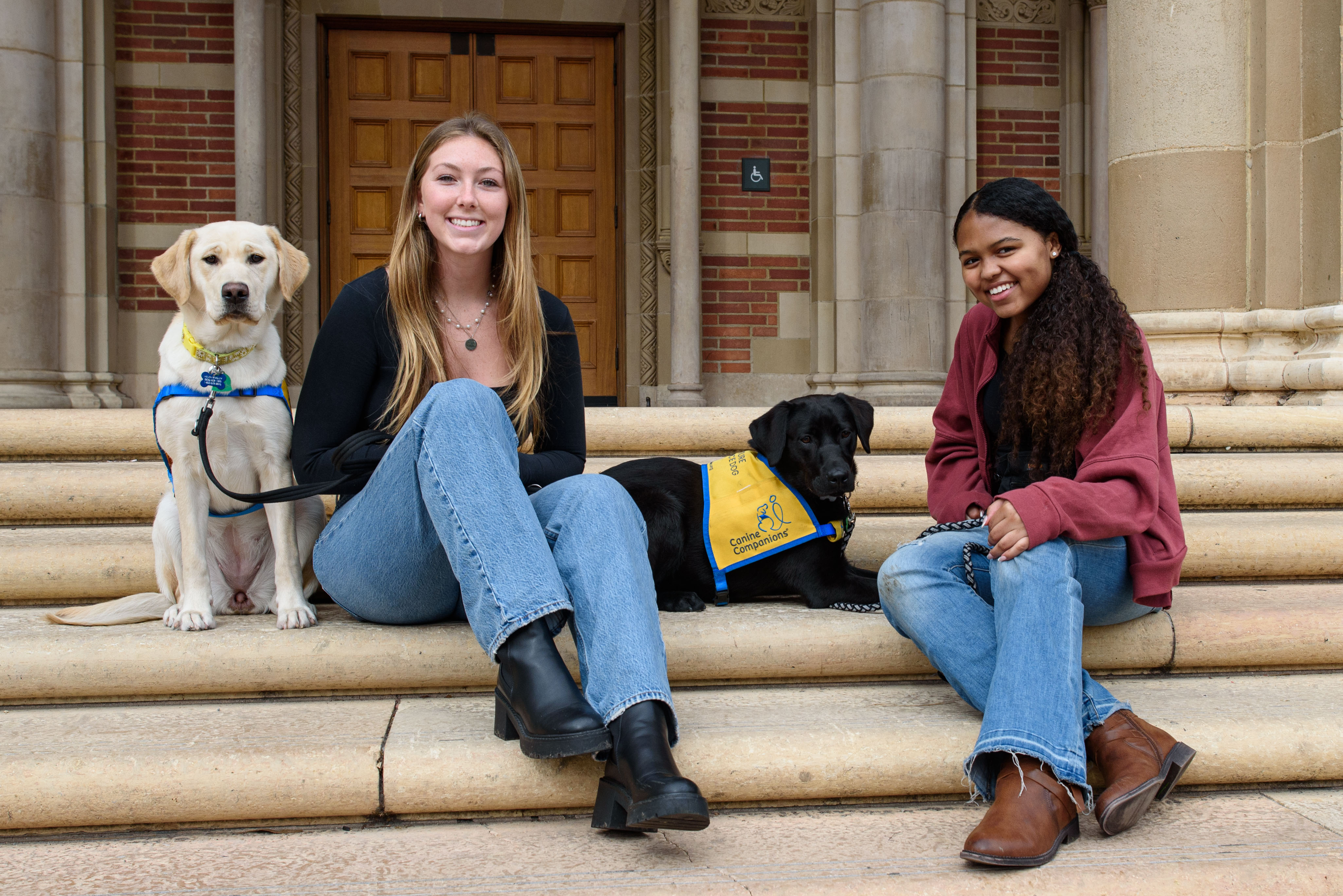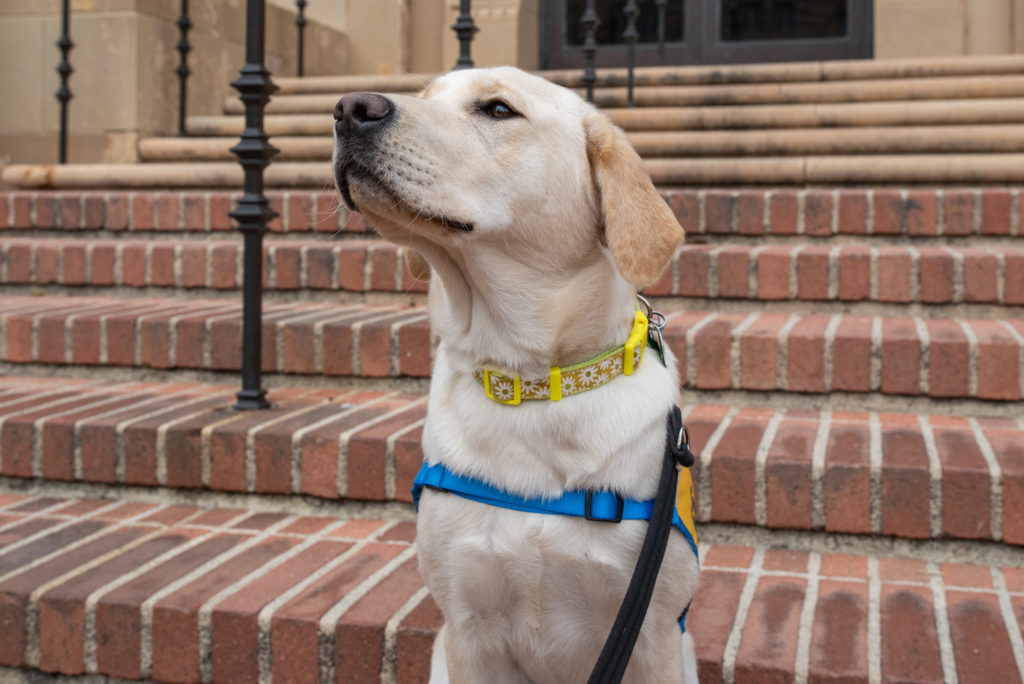Student-run Collar Scholars initiative works to raise service dogs, help community

Helen Ringley (left) and Alley Redd (right), members of the Collar Scholars club, are pictured. The club works to train service dogs for people with disabilities. (Charlotte Bradley-McKinnon/Daily Bruin)
By Prisha Puntambekar
Feb. 6, 2024 10:22 p.m.
Sporting bright yellow service dog vests, four-footed Bruins are often spotted trotting the corridors of UCLA with their tails wagging high.
However, these furry friends are unlike most other puppies. Rather than just guests on campus, they are valued members of Collar Scholars at UCLA, a student-run initiative dedicated to raising service dogs from puppyhood. Helen Ringley, the club’s puppy raising coordinator, said the club was founded during the 2022-2023 academic year, and its dogs are trained to assist their owners in a variety of ways – from emotional support to crosswalk navigation.
The club is a collegiate branch of Canine Companions, an organization that works to provide individuals with disabilities with service dogs, according to its website.
“We work somewhat independently but also in conjunction with Canine Companions,” said Ringley, who is also a third-year human biology and society student. “All of it tracks back to the eventual effort to get service dogs to people free of charge, so that they can have more independence in their lives.”
Leila Chiddick, the co-president of the club, said it provides students who have passed extensive training and exams with the opportunity to raise service dogs – a role titled puppy-raiser. Ringley added that other members of the club known as puppysitters are not full-time owners of a dog but temporarily supervise puppies while their respective puppy-raisers are unavailable.
“You first start out as a puppysitter to then become a puppy-raiser,” said Chiddick, a third-year global studies student. “You have to read through different handbooks that we have, attend a certain amount of meetings, so we know that you’re qualified and interested.”
Alley Redd, the club’s social media coordinator, said she is currently puppy-raising a young labrador named Tink, a process that consists of various ups and downs.
“Tink is great. … She’s very intelligent, she loves spending time in class with other dogs,” Redd said. “She does get a little bit stubborn, most puppies at this age do have a little bit of a teenage stubborn streak.’”

Redd, who is also a third-year communication student, said she sees great potential in the club’s puppies in spite of their occasional bullheadedness.
“They’re all going to do amazing things in the future,” she said. “I am very excited to see where each of them go.”
Ringley said while students currently residing on the Hill are unable to puppy-raise, they are still able to fulfill the role of a puppysitter or join one of the club’s committees, which deal with financial, veterinarian and other issues.
She also said one challenge the club has faced relates to relations with the university administration, adding that the club is currently trying to become more inclusive of students living in on-campus housing.
Although students with disabilities are able to house service dogs in their dorms, other dorm residents are not permitted to own service dog trainees, Ringley said. In an attempt to amend the issue, the club members recently campaigned to pass Policy 135, university legislation meant to make UCLA’s campus more accepting of service dogs. She added that, while the policy has given service dog trainees the same rights on campus as service dogs, the Center for Accessible Education still owns the right to reject puppy trainees from housing on the Hill.
“Policy 135 is something that we developed with the intention of being able to have dogs on campus, but also in university housing. Now it’s been passed, but the legal loopholes that exist within the policy are still preventing us from having dogs in UCLA housing,” Ringley said.
The club is currently exploring options for the service dog trainee program that would not require interaction with the CAE, Ringley added.
Chiddick said Collar Scholars will soon celebrate its one-year anniversary, adding that she envisions the club making an even greater impact as it grows.
“From my perspective, I hope we can make this campus more accessible, whether that means creating more awareness around what accessibility means, how to make this campus physically more accessible … and also creating more educational spaces on service dogs,” she said.

